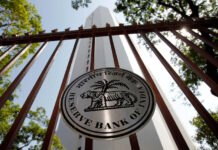The block elections in J&K are nothing but farcical in the absence of political parties except the BJP
The Government’s rush to restore normalcy in the Valley, be it by opening it to tourists or conducting the Block Development Council (BDC) elections, is now so horribly distant from the ground reality that it stands the risk of being counter-productive. Clearly, the concertina wires are now beginning to hurt the Government’s own plans and looking like an elaborate scheme of self-deception. The almost 60 days of lockdown, the imprisonment of top political leaders and notables to stifle any dissent on the changed status of Jammu & Kashmir and the intimidation of civilians by an enhanced security presence have only bred anger and prejudice. One can understand the Government’s strategic imperative. Though it has managed to convince the world at large of its sovereign right to change the status of Kashmir, it has to dispel any doubts as to the rationale of that integration and restore democratic rights immediately. The international concern over the rights situation in the Valley, be it of civilians or their elected representatives, keeps mounting and uncomfortable questions are being asked. Normalcy comes in fits and starts with internet and cellphones still down, free movement restricted to numbers, schools, colleges and hospitals just about sputtering to life and the economy ground to a halt. And the absence of a backlash doesn’t mean there is acceptance. According to an internal document of security forces, about 100 personnel have been injured in stone-pelting protests since the scrapping of Article 370. A unilateral move was expected to result in sound and fury but silencing the sound by force doesn’t mean the fury can be bottled up for long either. Erratic services mean some commercial establishments are imposing self-imposed curfews as a mark of protest, a sort of civil rebellion that can be far more crippling than violence. Of course, some semblance of normalcy may be the consequence of official prodding or simply a desire to get on with life as usual but cannot be interpreted as calm. If anything, it could be the proverbial lull before the storm. In such a scenario, no tourist is willing to risk a vacation or being profiled. A shutdown to snuff out local resistance may actually have an adverse effect with tourists becoming soft targets. Although the authorities are now releasing political leaders with a caveat of “maintaining good behaviour”, it is a euphemism for a conditional release. It means that any public discussion with their voters on the revocation of Article 370 or a free dialogue would still be considered incendiary.
There is no denying that local politicians have profited from both the Indian and Pakistan sides in the State’s terror economy but it is also true that mainline parties, like the National Conference (NC) and the Peoples Democratic Party (PDP), had respected electoral processes and been invested in the united India narrative. Besides, no matter whom New Delhi cultivated or not, the fact is political parties have fobbed off militants as an intermediary. Now the filter is being projected as the new enemy, completely eroding a system of popular representation. With the top brass of mainline parties still in detention, all parties, except the BJP, have decided to boycott the BDC elections on October 24. With most leaders in captivity, it is difficult to get their organisational machinery to work at the grassroots level in such a short time window. In the BDC polls, panches and sarpanches have to cast their vote to elect the Chairman but local parties argue that the process won’t be credible as over 64 per cent of panch and 45 per cent of sarpanch posts are vacant. About 90 per cent panchayat seats in Pulwama, Shopian and Kulgam districts are vacant, which means there will be no polls. Besides, by allowing the BDC elections to be held on a party basis and empowering the administration rather than the local electoral authority to conduct them, the Government has clearly moved away from the ideas of devolving power or strengthening local self-governance, something it could have used fairly to reap political dividends later. It is incumbent upon us to keep Panchayati Raj institutions as community-oriented and not politicise them. It is precisely because the elections are seen as a context of staging a political takeover that the Congress, too, decided to boycott them at the 11th hour. The BJP could have turned the elections into an opportunity for strengthening its case ground up. Its undue haste reeks of nothing but self-aggrandisement.






























